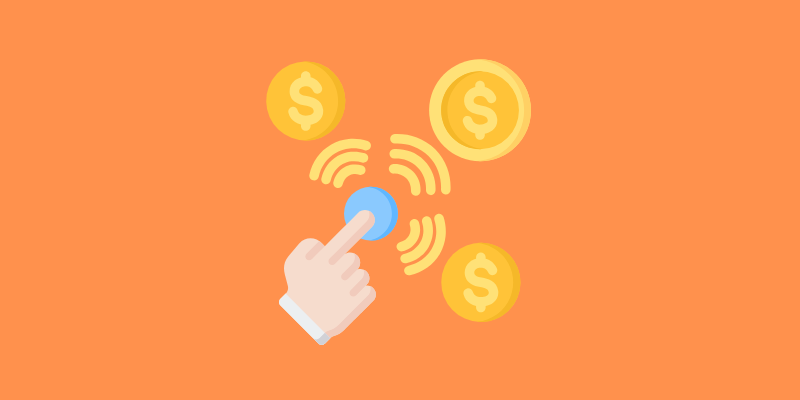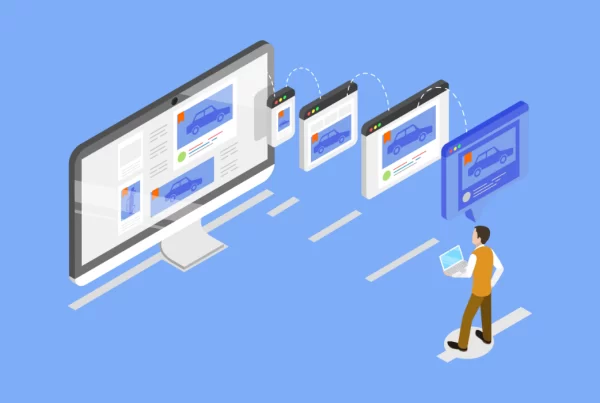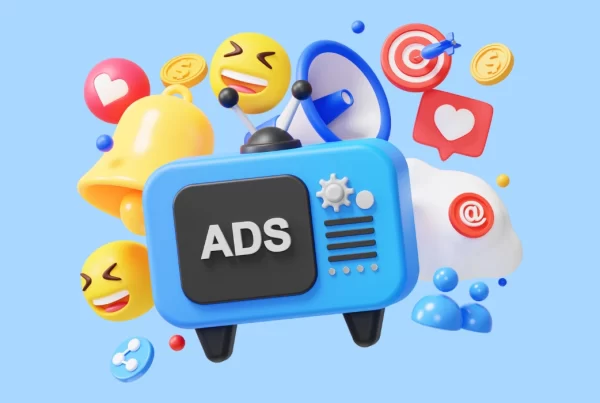Last Updated on 3 months by Gülenber Han
What is CPC question is one of the curious questions in terms of performance marketing. If you’re just starting started with cost per click there are a few things you should know to execute successful paid ads. CPC marketing is one of them. While CPC looks to be the cost per click on your ad, it is much more than that. CPC advertising is one of the most critical metrics to track and optimize to have a decent return on investment. The cost per click you spend has a significant impact on the profitability of your campaign. CPC advertising is a measure that defines how much marketers pay for advertising they put on websites or social media, depending on how many clicks the ad receives. Because it gauges the price of a brand’s paid advertising campaigns, CPC marketing is vital for marketers to consider. Marketers should strive to lower the cost of clicks while developing high-quality clicks and, as a result, delight consumers. For this, you can get help from a Google ADS Agency.
What is CPC (Cost Per Click)?
It is important for advertisements that you learn the answer to the question of what is CPC. You pay for each click on your adverts through CPC advertising bidding. You select a maximum CPC advertising bid for CPC bidding campaigns. CPC marketing CPC is the maximum amount you’ll be paid for a click, although you’ll usually be charged less — sometimes considerably less. Your real CPC is the ultimate amount you’re charged for a click. If you set a maximum CPC advertising bid and someone clicks on your ad, the cost of that click will not exceed the maximum CPC bid amount. You’ll be able to pick between manual and automated bidding.
The cost per click for an advertisement is referred to as CPC. It’s a statistic that applies to all forms of advertisements, whether they’re text-based, image-based, or video-based. It also applies to advertising that shows on search engine results pages, display ads, and ads that appear on social media platforms. Because obtaining a correct price on particular keywords helps determine the worth of advertising campaigns, thinking about CPC advertising should be one of the Sponsored Products best practices utilized by companies.
How Is Cost Per Click Calculated?
As important as what is CPC, another question is how it is calculated. The cost of a sponsored advertising campaign is divided by the number of clicks to get the cost per click. When you use a popular online advertising service like Google AdWords to bid on keywords to display paid advertisements, the CPC marketing for target keywords is commonly displayed.
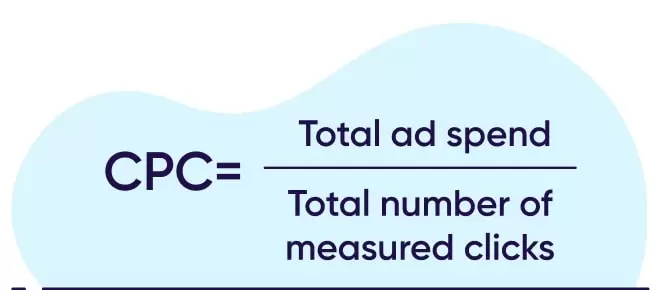
The cost of advertising divided by the number of clicks is the CPC marketing. Average CPC and maximum CPC are two related CPC measures. Marketers may wish to use tactics like enhanced and manual CPC bidding inside paid advertising systems like Google AdWords, depending on their aims.
What Is The Average Cost Per Click in Google Ads?
The average cost of a click is $2, however, this varies greatly by industry. A click from a Google search results page costs $2.32 on average, whereas a click from a publisher’s display page costs $0.58 on average. Advertisers with a high-quality Score receive discounts from Google Ads. The relevancy of the ad and the advertiser’s content to the search keywords used determines this score.
What is the maximum cost per click?
The maximum cost per click is a brand’s bid on ad placement and keywords, and it represents the most money they’re prepared to spend. Fortunately, the brand will rarely spend the maximum CPC advertising. The real CPC marketing will typically be lower than the first offer, based on similar brands and search quality ratings. The greatest price you think a click is worth and the highest amount you wish to spend is the maximum CPC. It’s possible that the maximum CPC you specify isn’t the amount you pay for a click. If you’re not sure what to pick for the greatest money per click, Google advises setting the maximum CPC marketing in AdWords to $1.
What is the manual cost per click bidding?
Once a firm has determined its maximum cost-per-click, it must select whether it wants to employ manual or automated cost-per-click bidding. Manual cost per click bidding refers to a brand’s ability to set its bid quantities. Instead, companies might employ enhanced CPC bidding for a more automated solution.
What is the enhanced cost per click?
Enhanced cost-per-click bidding is an alternative to manual cost-per-click bidding, in which the brand establishes its total budget and then has its bids automated based on it. Google AdWords and Microsoft Bing have both incorporated enhanced CPC bidding as a feature. Automated bidding is used in Sponsored Display to alter your bid based on conversion.
The Importance of Cost Per Click in Search Advertising
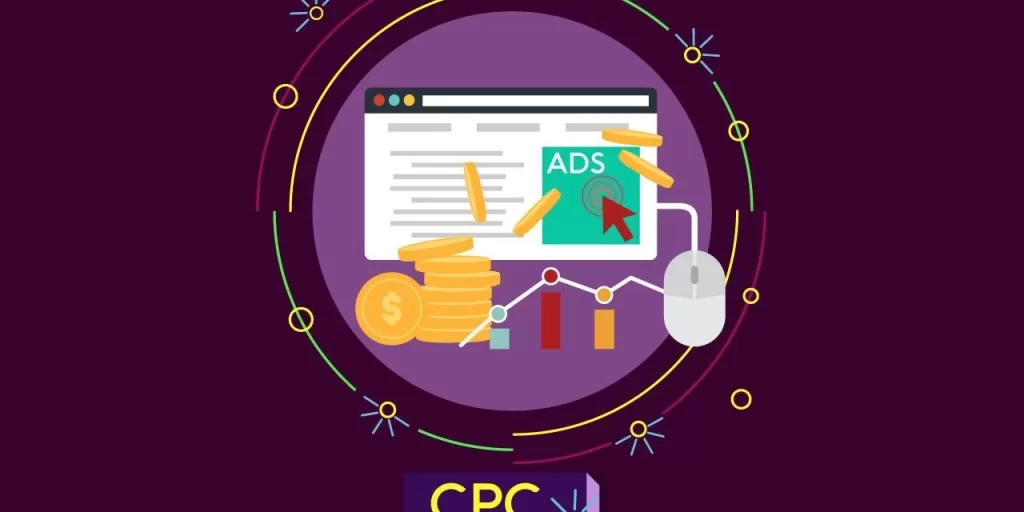
Since you have learned the answer to the question of what is CPC, you should know its importance in marketing. The CPC marketing is significant since it determines the financial success of your sponsored search campaigns as well as how much Google Ads will cost you. How much you pay for clicks and what sort of quality you get for that investment will influence your return on investment, whether you’re overpaying or underpaying for each activity. Because the cost of clicks and the quality of traffic they bring influence the total ROI of your campaigns, it’s critical to think about cost per click in terms of both cost and value. You want to find and target clicks that are both cheap and worthwhile.
CPC marketing offers you a precise indication of how effectively your internet marketing efforts are doing. It might help you figure out whether you’re spending too much on a single ad and not getting enough value out of it. This data may help you tweak your marketing plan so that the quality and reach of your ads, as well as your total return on investment, increase.
CPC advertising not only helps you measure performance but also helps you figure out how much money your company makes overall. You may efficiently improve your site traffic with this particular marketing approach. With greater visitors, your items or services have a better chance of selling, resulting in more money for your company over time. CPC marketing considers how critical proper targeting is for reaching your desired audience. Ads that are customized to specific persons based on specific keywords and keyword searches generate more traffic.
CPC advertising is a crucial approach since it provides complete control. You can start, halt, or pause your campaign at any moment, which might be useful if your budget falls behind schedule. Having the ability to pause or halt your campaign as necessary helps you to tweak your advertising and other material for the best outcomes. In this respect, getting help from a Digital Marketing Agency will give you the results you want.
Lowering CPC While Maintaining Value
All brands should strive for a low CPC. That is to say, adverts should be optimized to provide great value at a cheap cost. CPC marketing should also be commensurate to a brand’s total revenues, as the ultimate purpose of CPC is to boost sales. Most businesses don’t want to spend more on advertising than they earn, so planning is essential. Finding solutions to minimize the CPC advertising for the keywords in your campaign is a crucial step in being competitive and eventually succeeding in your online advertising efforts in the highly competitive world of Google Ads. The complexity degree of getting reduced CPC may vary according to your business, products, and targeted region, but there are certain common recommendations that, if followed correctly, should help you.
Raise Your Quality Score
Google has developed an automated mechanism that rewards well-managed PPC ads with high-quality Scores at a lower cost. Accounts with quality scores of 6 or above (the average score today is 5) receive a 16-50 percent CPC advertising reduction, whereas accounts with a 4 or lower quality Score receive a 25-400 percent CPC rise. Adhere to Quality Score best practices to increase your chances of dramatically reduced CPC advertising:
- Create appealing, relevant advertising to increase click-through rates (CTR).
- Create ad groupings that are closely connected.
- Ad copy and landing sites that speak to each search intent should be optimized.
Expand Your Reach
The allocation of your budget will be much enhanced by identifying fresh, relevant, and valuable clicks. You’ll need to come up with new PPC keywords and search advertising chances to do this. But you can’t merely grow without cutting back – you’ll need to remove unnecessary or costly clicks from your advertising at the same time.
Refine Your Reach
Negative keywords, which are constantly added to your Google Ads account, assist in reducing your average CPC by filtering out traffic from searchers who are unlikely to convert. As you add new terms to your Google Ads account, keep the losers in mind. When you solely target keywords that are profitable and relevant to your business.
Your spend is protected
Lowering your cost per click is pointless if you’re paying cheap amounts for clicks that aren’t relevant. Negative keywords inform your PPC campaigns which phrases they shouldn’t target, allowing you to focus your spending on the most relevant terms.
Your Quality Score improves
Your click-through rate and other Quality Score variables will be favorably influenced if your keywords are tied to your ad content, landing pages, and offers. This results in more cost-effective clicks (remember, up to a 50% reduction in CPC) and more likely-to-convert search phrases.


